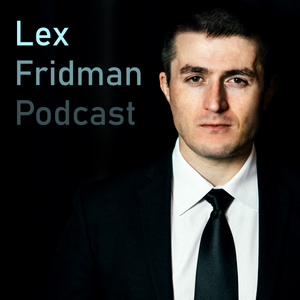
Going viral: Can AI predict the next pandemic?
10/19/23 • 29 min
The next pandemic — it’s a question of when not if. Climate change is shifting the patterns of how and where diseases spread, and our insatiable love of travel means that viruses are now showing up in places they’ve never been before. Forecasting future outbreaks is becoming increasingly complex. But as infectious disease specialist Kamran Khan explains, this is where AI can help. Machine learning algorithms can detect patterns in data, model risk and project outcomes — and unlike humans they can work 24 hours a day. In this episode of Solve for X, host Manjula Selvarajah sits down with Khan to explore the connections between infectious disease and climate change — and how we can best harness the technology to help us prepare.
Featured in this episode:
- Kamran Khan is an infectious disease physician and founder and CEO of BlueDot, a startup that has created a tool that maps the spread of infectious diseases. BlueDot’s AI software uses natural language processing to interpret global health outbreak reports, integrating this data with flight patterns, demographic statistics, and human verification processes to alert and monitor disease risks worldwide.
Further Reading:
- My Prediction: We’re due for another global health emergency
- Over half of known human pathogenic diseases can be aggravated by climate change
- This AI will help us get ahead of the next pandemic
- From Gateways to Sentinels: How Airports Can Use Detection to Control Infection
- An AI Epidemiologist Sent the First Warnings of the Wuhan Virus
Solve for X is brought to you by MaRS, North America’s largest urban innovation hub and a registered charity. MaRS supports startups and accelerates the adoption of high-impact solutions to some of the world’s biggest challenges. For more information, visit marsdd.com.
The next pandemic — it’s a question of when not if. Climate change is shifting the patterns of how and where diseases spread, and our insatiable love of travel means that viruses are now showing up in places they’ve never been before. Forecasting future outbreaks is becoming increasingly complex. But as infectious disease specialist Kamran Khan explains, this is where AI can help. Machine learning algorithms can detect patterns in data, model risk and project outcomes — and unlike humans they can work 24 hours a day. In this episode of Solve for X, host Manjula Selvarajah sits down with Khan to explore the connections between infectious disease and climate change — and how we can best harness the technology to help us prepare.
Featured in this episode:
- Kamran Khan is an infectious disease physician and founder and CEO of BlueDot, a startup that has created a tool that maps the spread of infectious diseases. BlueDot’s AI software uses natural language processing to interpret global health outbreak reports, integrating this data with flight patterns, demographic statistics, and human verification processes to alert and monitor disease risks worldwide.
Further Reading:
- My Prediction: We’re due for another global health emergency
- Over half of known human pathogenic diseases can be aggravated by climate change
- This AI will help us get ahead of the next pandemic
- From Gateways to Sentinels: How Airports Can Use Detection to Control Infection
- An AI Epidemiologist Sent the First Warnings of the Wuhan Virus
Solve for X is brought to you by MaRS, North America’s largest urban innovation hub and a registered charity. MaRS supports startups and accelerates the adoption of high-impact solutions to some of the world’s biggest challenges. For more information, visit marsdd.com.
Previous Episode

Sea change: Can we alter the chemistry of the ocean to save the climate?
Scientists are finding that ocean alkalinity enhancement is one of the more promising solutions for permanently storing carbon from the atmosphere. And not only could this emerging technology help with the climate crisis, it could also address another key problem: acidity in the ocean, which is endangering ecosystems. In this premiere episode of the second season of Solve for X: Innovations to Change the World, host Manjula Selvarajah explores how this technology could help and what still needs to be figured out.
Featured in this episode:
- Claudia Benitez-Nelson is an oceanographer who teaches at the University of South Carolina’s School of Earth, Oceans and Environment. Her research focuses on the ocean’s role in sequestration of greenhouse gasses, and the processes that shape the movement of materials from the ocean’s surface to its depths.
- Will Burt is the chief ocean scientist at Planetary Technologies. As a biogeochemist and oceanographer by training, he devises strategies on how we can measure and add alkalinity to the ocean.
- Eddie Halfyard is the co-founder and chief technology officer at Carbon Run. He’s also a research scientist with the Nova Scotia Salmon Association, pursuing freshwater alkalinity enhancement to restore salmon habitats.
- Sara Nawaz is a social scientist who studies the public perception of ocean-based negative emissions technology. She’s also the director of research at the Institute for Carbon Removal Law and Policy at American University, and is affiliated with UBC and Oxford University.
- Matthew Long, oceanographer at the National Center for Atmospheric Research, serves both as co-founder and Executive Director of [C]Worthy. He and his team are developing the tools required for safe and effective ocean-based carbon removal.
Further Reading:
- Using new research techniques scientists find Atlantic salmon are still returning to many Nova Scotia rivers
- Halifax scientists have a plan to capture carbon from the atmosphere using mining materials
- Does ocean acidification alter fish behavior? Fraud allegations create a sea of doubt
- Warning on Mass Extinction of Sea Life: 'An Oh My God Moment'
- Take Care Before Enlisting the Oceans in the Climate Fight
MaRS works closely with ventures to help them scale their innovations. It created the Mission from MaRS initiative to help speed up the adoption of climate solutions. Mission from MaRS thanks its partners, HSBC Bank Canada, Grantham Foundation, RBC Tech for Nature and Peter Gilgan Foundation. Learn more about the program at missionfrommars.ca.
Solve for X is brought to you by MaRS, North America’s largest urban innovation hub and a registered charity. MaRS supports startups and accelerates the adoption of high-impact solutions to some of the world’s biggest challenges. For more information, visit marsdd.com.
Next Episode

Drain brain: Meet the man who is fixing our wastewater problem
Wastewater, the world’s dirty (not so little) secret, consumes nearly 3 percent of the global electricity demand. It’s a staggering statistic, and yet much of what actually happens with wastewater remains a mystery. Treatment plants typically purify water by infusing it with oxygen, creating an environment where bacteria can break down waste. But without proper sensors or data, the method is incredibly energy-intensive. Plus with an influx of unregulated chemicals, our waste streams are becoming more toxic and harder to clean. In this episode of Solve for X, environmental microbiologist Patrick Kiely shares his unusual solution that harnesses the power of bacteria to help solve our wastewater problem. Unpleasant yet fascinating, Kiely’s work offers a glimpse into what it takes to clean our water and why treating wastewater is the next big climate problem.
Featured in this episode:
- Patrick Kiely is the CEO and founder of SENTRY, a real-time monitoring biosensor system for wastewater treatment. With extensive training in environmental microbiology, his unique knowledge of bacterial growth across diverse environments forms the basis for advanced decision-making in water and wastewater technologies.
Further Reading:
- How tackling wastewater can help corporations achieve climate goals
- Phosphorus saved our way of life — and now threatens to end it
- “Water scarcity on a scale that we haven’t seen before” is coming
- The energy sector should care about wastewater
- Government of Canada backs innovative company pioneering new wastewater treatment technology
Solve for X is brought to you by MaRS, North America’s largest urban innovation hub and a registered charity. MaRS supports startups and accelerates the adoption of high-impact solutions to some of the world’s biggest challenges. For more information, visit marsdd.com.
If you like this episode you’ll love
Episode Comments
Generate a badge
Get a badge for your website that links back to this episode
<a href="https://goodpods.com/podcasts/solve-for-x-innovations-to-change-the-world-441773/going-viral-can-ai-predict-the-next-pandemic-60325437"> <img src="https://storage.googleapis.com/goodpods-images-bucket/badges/generic-badge-1.svg" alt="listen to going viral: can ai predict the next pandemic? on goodpods" style="width: 225px" /> </a>
Copy




